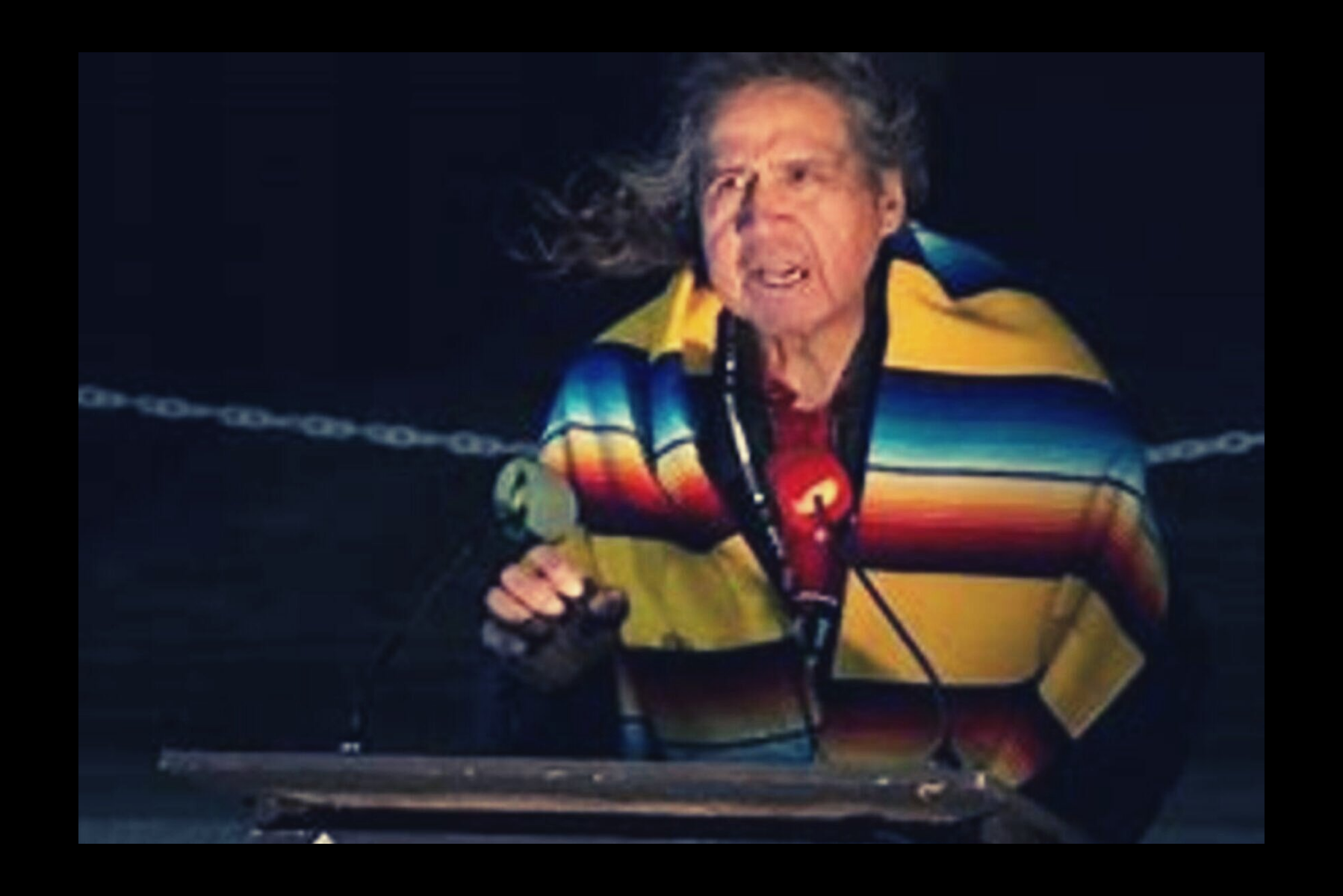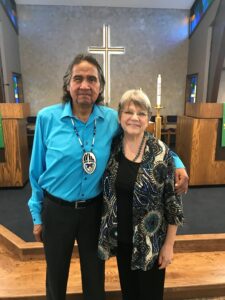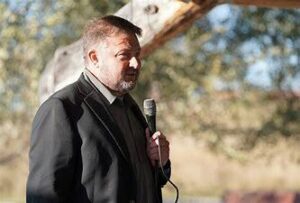News
Still Praying for Whiteclay: Creating Space for Healing
February 16, 2022


Much has happened since the ELCA Synod hosted its first Pray for Whiteclay Sunday on November 22, 2015. That year, Winnebago activist Frank LaMere joined Heather Craig-Oldsen and members of Salem Lutheran Church in Ponca to pray for the end of predatory beer sales in Whiteclay, Nebraska.
An unincorporated town of less than 12 residents, Whiteclay is located within 300 yards of Pine Ridge, South Dakota, a tribal reservation where alcoholic beverages are prohibited. Whiteclay’s four beer stores sold over 3.5 million cans of beer annually, until the Nebraska Liquor Control Commission closed the stores on April 30, 2017.
Craig-Oldsen, retired Chair of the Social Work Department at Briar Cliff University, recently addressed how the Pray for Whiteclay events and her work to close the beer stores impacted her faith:
“I start each day hoping, and sometimes praying aloud, that I will see what God has in store for me and respond through love,” Craig-Oldsen said. “I have even more faith in the power of love today because of the battles I’ve seen fought around Whiteclay. I do believe love will prevail.”
The violence and vagrancy that plagued Whiteclay’s streets are gone. But the scars left by decades of predatory beer sales remain. Pine Ridge continues to wrestle with addiction, suicide, and poverty rates significantly higher than the national average.
Today, the focus has turned to mitigating the harms caused by Whiteclay’s beer sales. The Oglala Sioux Tribe’s substance abuse program, Anpetu Luta Otipi, recently opened a new treatment center in Pine Ridge. In December 2021, Thunder Valley Community Development Corporation, a tribally-led, non-profit organization based in Pine Ridge, purchased 48 acres of land in Whiteclay.
“For decades this town was a place of despair and violence,” recalls Tatewin Means, Thunder Valley’s executive director and former tribal attorney general. “By acquiring this land and working to provide transitional and permanent supportive housing with easy access to mental health and addiction services, we are changing it into a place of hope, rooted in our Lakota Lifeways.”

John Maisch, a former liquor prosecutor who worked with LaMere, Craig-Oldsen, and others to close the beer stores, emphasized the importance of supporting Anpetu Luti Otipi and Thunder Valley in their efforts to bring healing to the Oglala Lakota people:
“Helping transform Whiteclay is not only an important part of the mitigation process,” said Maisch, who grew up in Grand Island, Nebraska, where he attended St. Paul’s Lutheran Church. “But it’s the best insurance policy that the beer stores will never return to this unincorporated town.”
What can local congregations do now:
- Designate the Sunday before Thanksgiving as Pray for Whiteclay Sunday and incorporate prayerful education and action into one of the local missions of the congregation.
- Financially support Thunder Valley Community Development Corporation (www.thundervalley.org) and Anpetu Luta Otipi (www.anpetuluta.org).